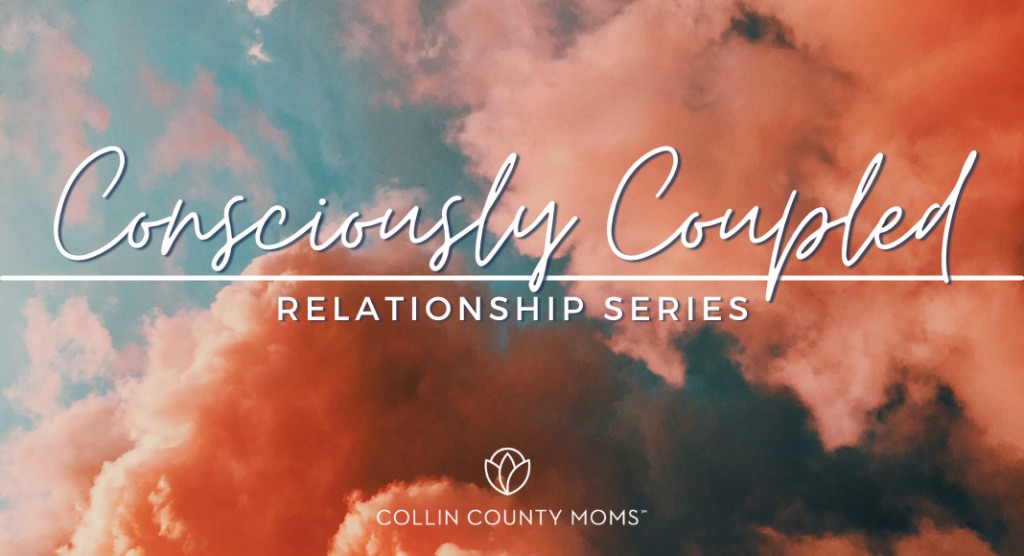
*Consciously Coupled* explores everything relationships from local moms AND a licensed couples counselor. We’re discussing couples therapy, the pros and cons of relationship books, tips on navigating cross-cultural relationships, how to find time alone as a couple, and MUCH MORE! See the entire series here.
The most common reason couples see a therapist is because they don’t feel emotionally connected to their partners.
Sure, they’ll make the first appointment because they’re knee-deep in a painful disagreement they’ve had countless times over an issue all couples face (housework, parenting, finances, and sex). But behind the quarrels of how to manage roles in the household are some pretty painful feelings.
Emotional Connection is Key to Thriving Partnership
Partners who don’t feel seen, understood or valued won’t feel emotionally connected.
The marital commitment we should intentionally make is the promise to do life together.
All human beings ultimately want to have our lives witnessed because it makes us feel like we matter. It’s innate that we want to feel purposeful and relevant.
We get our self-esteem and confidence at a very young age by what we believed trusted others (caregivers) told us about ourselves. If you had a parent who encouraged and praised you, you felt that. You soaked it in and personified all the words that fed you.
When caregivers don’t do this, it has the opposite effect on a child, and they believe and embody those words, too.
What most people don’t realize, though, is that this process happens throughout the entire lifespan. The people you have in your life are your mirrors. When you have enough negative, toxic people in your life, you start to believe and embody what they say and who they are. Likewise, the positive, praising people with whom you surround yourself helps to build you up and boost your self confidence and feelings of worthiness.
So, it stands to reason that your partner is your most trusted ally in this “mirroring” process. Who they are, what they stand for, and how they interact with you as a human being can significantly impact how you see yourself on the inside.
The path of receiving love, encouragement, and depth with your partner is emotional. When you have a genuine emotional connection, you feel seen.

A.R.E. You There For Me?
One of my favorite authors and teachers, Dr. Sue Johnson, has an acronym that clearly describes what couples need from one another. A.R.E. begs the question, “Are you there for me?”
A – Accessibility. Are you and your partner easy to access throughout the day? Healthy, thriving partners regularly turn toward each other, reaching out at various points during the day. Being accessible helps build trust and a feeling of security.
R – Responsiveness. Are you and your partner responsive to each other’s emotional needs? Neurologically, when someone else “sees” how we feel, it has a calming effect on our nervous system. It’s like being rocked by your loving grandmother, who hasn’t a single more important thing in the whole world than being with you at that moment. So whether your partner cares about how you feel is vital to emotional health.
E – Engaged. Are you and your partner engaged with one another when you do talk? Or, are you on cell phones, watching TV, or distracted with kids? Authentic engagement is when you set everything else aside and indeed be with your partner.













